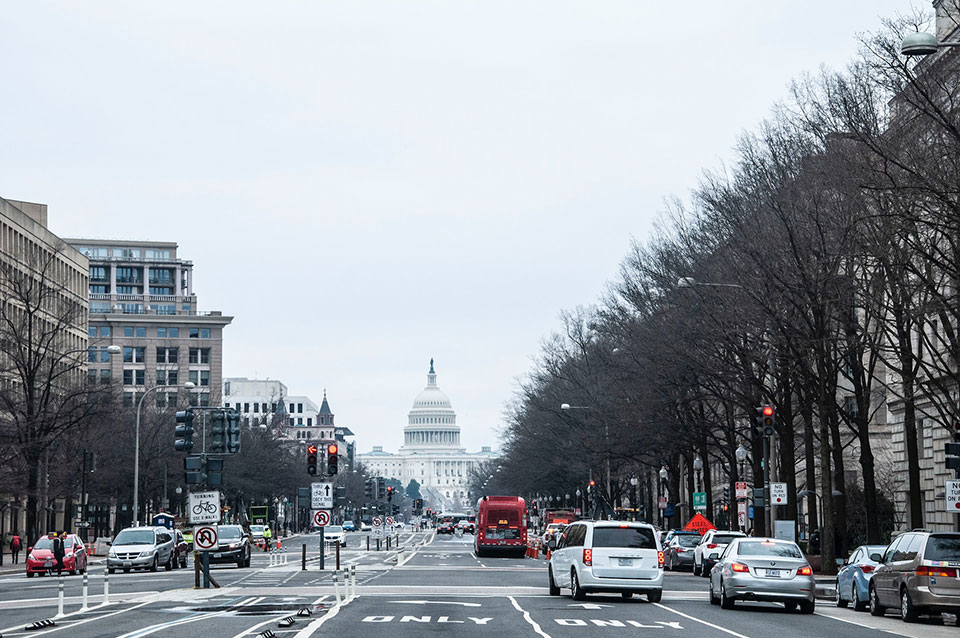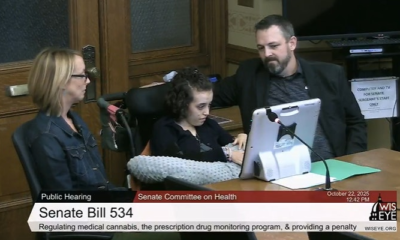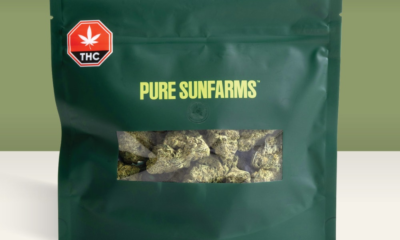There’s reason to be hopeful that federal marijuana rescheduling will be completed under the incoming Trump administration – possibly even passage of a new SAFE Banking bill and a new permissive federal policy on cannabis commerce from the Department of Justice. That’s according to two leaders of the Marijuana Policy Project on Wednesday.
MPP Executive Director Matt Schweich and Director of State Policies Karen O’Keefe both said that there are obvious reasons to be hopeful heading into a second Trump presidency, given positions Trump took during the campaign this year, and also outlined where they thought new state legalization victories might be achieved in the coming year.
“We’re at an exciting moment for federal cannabis reform. Whenever one party controls the presidency, the House and the Senate, that’s when policymaking can actually get done in Washington,” Schweich said. “And while it’s the Republican Party that controls these seats of power, we have a president who for the first time in modern history endorsed legalization on the campaign trail.”
Schweich said he’s an “optimist” when it comes specifically to the question of federal marijuana reform – even nodding with a laugh to the Harris-Walz campaign sign still adorning his office wall behind him during the online press availability.
O’Keefe said the real question is how much of a priority Trump himself wants to make cannabis policy, since there isn’t a lot of immediate support from Congressional Republicans. But it’s clear that senators and representatives are likely to follow his lead.
“If he decides to make this a major push, I think we could see a lot of progress,” O’Keefe said.
For instance, she speculated, a new attorney general could sign off on an updated version of the Cole Memo – a 2013 federal policy memo that kickstarted the national recreational marijuana trade by taking a hands-off enforcement stance from the Department of Justice towards Colorado and Washington state. A new version, O’Keefe said, could be even more liberal than the first memo, which was rescinded in 2018 by then-Attorney General Jeff Sessions during the first Trump administration.
“It is really, really important they have a new Cole Memo … it could even say that you could have cross-border sales. It could be better than the original Cole Memo. Certainly, the attorney general could put their bully pulpit behind broader reform,” O’Keefe said.
The irony, the two said, is that the GOP – which has traditionally been more hostile to cannabis reform than Democrats – may wind up being more effective at getting actual cannabis policy implementation done than President Joe Biden’s administration. Schweich said that Biden failed to live up to his 2020 campaign pledge to decriminalize marijuana, adding that the Democrats’ failure to fully achieve any meaningful federal reform is “damning.”
“We had a Democratic president, at the start of his term, with control of the House and the Senate,” Schweich said. “And what do we have to show for it? A rescheduling to Schedule III that says cannabis is more dangerous than Xanax. This is an epic squandering of a political reform opportunity by the Democratic Party.”
With the Republicans, Schweich said, the SAFE Banking Act now may have a chance of becoming law, simply because the GOP appears more open to incremental reform. Democratic congresspeople were stymied by internal party demands for more “holistic” cannabis reform that included more sweeping social justice changes, he said.
Moving forward, Schweich said he doesn’t expect MPP to support any recreational marijuana ballot measure campaigns in the 2026 election cycle, but the organization is looking to support a medical marijuana campaign in either Idaho or Wyoming. The organization will wait to fund another state campaign for recreational until the next presidential race in 2028, when voter turnout is typically higher.
At the state legislative level, O’Keefe said she’s optimistic that Hawaii will legalize adult-use marijuana in 2025. Other potential states that could move on recreational include Pennsylvania, New Hampshire and Louisiana.
Regarding medical marijuana legalization, O’Keefe said the top prospects for 2025 are Indiana, North Carolina, South Carolina and Wisconsin.

 California Cannabis Updates1 year ago
California Cannabis Updates1 year ago
 Breaking News1 year ago
Breaking News1 year ago
 best list1 year ago
best list1 year ago
 Business1 year ago
Business1 year ago
 Business1 year ago
Business1 year ago
 cbd1 year ago
cbd1 year ago
 Bay Smokes1 year ago
Bay Smokes1 year ago
 autoflower seeds1 year ago
autoflower seeds1 year ago
















































